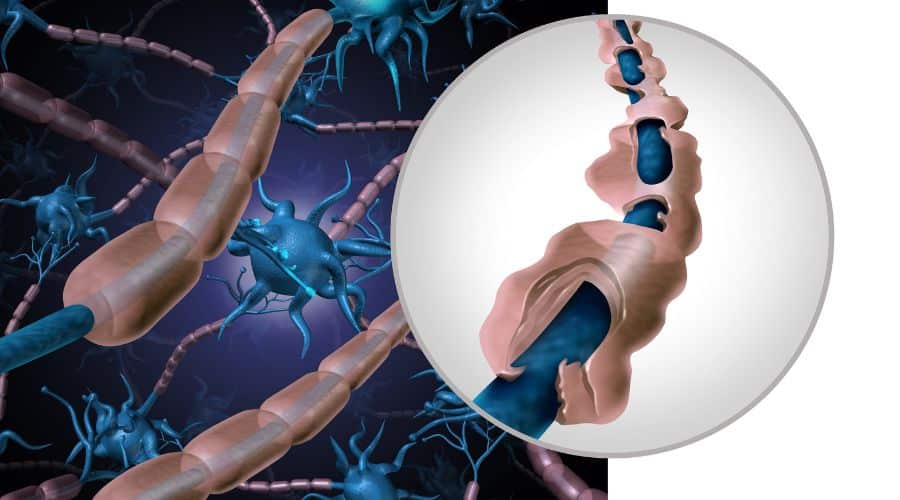Multiple Sclerosis
Our mission is to help people make better decisions about their health and add a little joy to their day. With Body Balance we will help you pursue growth & lifelong learning with honest & open communication channels.
What Is Multiple Sclerosis?
Multiple sclerosis, or MS, is a long-lasting disease that can affect your brain, spinal cord, and the optic nerves in your eyes. It can cause problems with vision, balance, muscle control, and other basic body functions.
The effects are often different for everyone who has the disease. Some people have mild symptoms and don’t need treatment. Others will have trouble getting around and doing daily tasks. MS happens when your immune system attacks a fatty material called myelin, which wraps around your nerve fibers to protect them. Without this outer shell, your nerves become damaged. Scar tissue may form.
The damage means your brain can’t send signals through your body correctly. Your nerves also don’t work as they should to help you move and feel. As a result, you may have symptoms like:
- Trouble walking
- Feeling tired
- Muscle weakness or spasms
- Blurred or double vision
- Numbness and tingling
- Sexual problems
- Poor bladder or bowel control
- Pain
- Depression
- Problems focusing or remembering
The first symptoms often start between ages 20 and 40. Most people with MS have attacks, also called relapses, when the condition gets noticeably worse. They’re usually followed by times of recovery when symptoms improve. For other people, the disease continues to get worse over time.
In recent years, scientists have found many new treatments that can often help prevent relapses and slow the disease’s effects.
Request A Call Back from a Physical Therapist
If you’re not quite ready to book an appointment yet and have some questions you would like answered first, click the link below to complete a form to get the conversation started.


What Causes MS?
Doctors don’t know for sure what causes MS, but there are many things that seem to make the disease more likely. People with certain genes may have higher chances of getting it. Smoking also may raise the risk.
Some people may get MS after they’ve had a viral infection — like the Epstein-Barr virus or the human herpesvirus 6 — that makes their immune system stop working normally. The infection may trigger the disease or cause relapses. Scientists are studying the link between viruses and MS, but they don’t have a clear answer yet.
Some studies suggest that vitamin D, which you can get from sunlight, may strengthen your immune system and protect you from MS. Some people with higher chances of getting the disease who move to sunnier regions seem to lower their risk.
getting diagnosed with MS
It can be hard to diagnose MS, since its symptoms can be the same as many other nerve disorders. If your doctor thinks you have it, they’ll want you to see a specialist who treats the brain and nervous system, called a neurologist. They’ll ask you about your medical history and check you for key signs of nerve damage in your brain, spinal cord, and optic nerves.
There’s no single test that can prove you have MS. Your doctor will use a few different ones to check you. These may include:
- Blood tests to rule out diseases that cause similar symptoms, like Lyme disease and AIDS.
- Checks of your balance, coordination, vision, and other functions to see how well your nerves are working.
- A test that makes detailed pictures of the structures in your body, called an MRI.
- Analysis of the liquid that cushions your brain and spinal cord, called cerebrospinal fluid (CSF). People with MS usually have specific proteins in their CSF.
- Tests (called evoked potentials) that measure the electrical activity in your brain.
- OCT (Optical coherence tomography) used to detect changes in the retina which could warn of brain atrophy
Request A Free Discovery Visit
Are you unsure if physical therapy is right for you? Take advantage of our FREE discovery visits which help identify your issues and if we can provide help!
** Please note there is no treatment given during one of our discovery visits. These visits are designed to evaluate your needs and ensure we can offer the help you need.
treatment for MS
Our physical therapist can teach you exercises that will keep up your strength and balance and help you manage fatigue and pain. Our therapist can teach you new ways to do certain tasks to make it easier to work and take care of yourself. If you have trouble getting around, a cane, walker, or braces we can help you walk more easily.
Along with treatment, you can do other things to ease your MS symptoms. Get regular exercise and avoid too much heat to boost your energy. Ask your doctor about trying yoga to ease fatigue or stress. Take care of your emotional health, too. It’s OK to ask family, friends, or a counselor for help with any stress or anxiety you may feel. Support groups are also great places to connect with other people living with MS.
